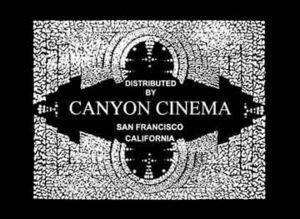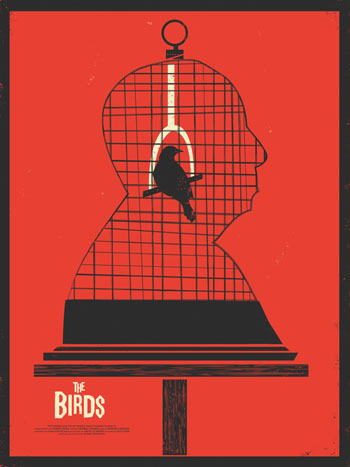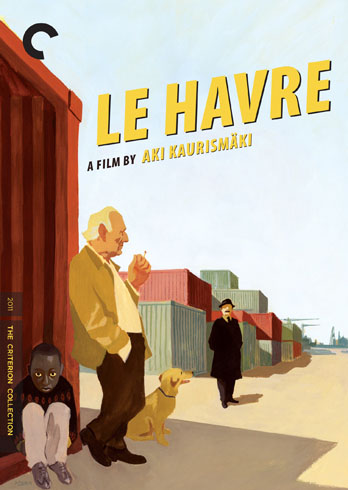So far this week, we’ve lost Chris Marker and Gore Vidal and Sight & Sound has begun rolling out the results of its once-every-ten-years “Greatest Films of All Time” polls of critics and directors. And it’s only Thursday. All this busyness has led to our falling behind on other news, goings on, and fine reads.
First up, Canyon Cinema has announced that its executive director, Dominic Angerame, will retire: “For 32 years, Dominic Angerame has been the heart, soul, and guiding force for Canyon Cinema, one of the most important distributors of avant-garde film in the world. It is with great sadness that we have to announce his departure. He has been a central force in the life of so many well-known filmmakers, including Stan Brakhage, Bruce Baillie, Kenneth Anger, and Bruce Conner.”
And after five years as film editor at the L Magazine, Mark Asch is taking off for the University of Iceland: “[I]t’s been my pleasure to try to become a serious contributor to New York City film culture, while having the pleasure or working with or brushing up against so many people I admire.”
Reading. For Film Comment, B. Kite picks up his ongoing exchange with Kent Jones on Robert Bresson: “All Schradersniping aside, I think my problem with the ‘transcendental’ approach comes down to the fact that it presumes an answer, goal, and destination, where the films, for me, seem to live in their ambivalence, and in their efforts to find expressive form for ambivalence.”
“I wonder if anyone has undertaken a study of Water and Movies,” writes Geoffrey O’Brien for the New York Review of Books. “It is a subject of almost infinite application, starting from the earliest registering of the movement of waves and rivulets by cinematic pioneers. It is the most privileged element in film because it exercises cinematic power merely by being filmed. The bodies of water that have served as crucial staging grounds would make a catalog of the most intense moments in cinema, from the waterfall with which Buster Keaton contended in Our Hospitality to the lotus pool where June Duprez caught sight of John Justin’s reflection in Alexander Korda‘s The Thief of Bagdad, from the misty lake across which Kinuyo Tanaka and her children were unwittingly ferried toward misfortune in Mizoguchi’s Sansho the Bailiff to the bay from which James Stewart rescued Kim Novak in Hitchcock’s Vertigo, and on out to the ocean where the doomed hero of Murnau‘s Tabu sank beneath the waves. In all that profusion there are some few films where the watery element so predominates as to create a kind of pool for the mind: Jean Vigo’s L’Atalante was one such, Beasts of the Southern Wild is another.”
The Guardian‘s Xan Brooks on his favorite Hitchcock, The Birds (1963): “Here is a film that provides no answers and no escape. Chaos reigns from top to tail.” Then there’s Catherine Shoard on hers: “It’s hard to think of any adult in his films—the great ones, anyway—whose copybook has not a smudge, whose odd blots don’t mushroom and bleed, soak their coats and cloud their judgement. And, for me, his primary preoccupation was never more brilliantly realized than in Strangers on a Train, the murder-swap thriller from 1951.” See Fernando Reza‘s site, by the way, for more of his work; and here are a couple of pics of Toby Jones and Anthony Hopkins as Hitch.
New York. “I had a very special, very personal, very privileged relationship with Claude Sautet,” writes Bertrand Tavernier. “I felt a shock when I discovered his Classe Tous Risques (60), and it was on this film that I wrote my first review. It was a short article, as the editor had requested, and doubtless superficial—I was young—but laudatory. It ended with this sentence: ‘I’ve heard them say that Classe Tous Risques is a ‘B’ movie, but better ‘B’ like Boetticher than ‘A’ like Allegret.’ It’s a sentence I now find unnecessarily mean to Allegret.”
The Film Society of Lincoln Center series Claude Sautet: The Things of Life opens today and runs through August 9 and Simon Abrams agrees that Classes tous risques is indeed “a superior film noir.” Also at the L, Benjamin Mercer recommends Max et les ferrailleurs (Max and the Junkmen, 1971), “just now getting its New York theatrical premiere… A stone-faced Michel Piccoli stars as Max, a former judge now doing detective work in a Paris of card games and smoldering ashtrays.”
And here’s more in the L: Joseph Jon Lanthier previews Milton Moses Ginsberg: The Private Life of Time, a program at the Anthology Film Archives this evening.
Do the Reggae runs at BAMcinématek from tonight through Monday and Nick Pinkerton has an overview in the Voice, Ryan Sheldon has another for Bomb, while, in the L, Aaron Cutler revisits Perry Henzell’s The Harder They Come (1972).
San Francisco. In the Bay Guardian, Dennis Harvey previews Weird Cinema: An H.P. Lovecraft Double Feature, happening tonight at the Roxie, and An Evening with H.P. Lovecraft, tomorrow night at the Rafael Film Center.
DVDs/Blu-ray. “Fatalist Finn Aki Kaurismäki’s Le Havre is a comic-strip-colored take on France’s inability to find a humane response to an illegal immigrant influx,” writes Vadim Rizov at GreenCine Daily. “The story follows the familiar contours of old-man-softened-by-young-boy sagas: shoeshiner Marcel Marx (André Wilms) helps stranded Gabonese youth Idrissa (Blondin Miguel) evade the law and make it to London. Soothing turquoise paint covers the walls, natural light floods the outdoors and Kaurismäki’s usual taciturn deadpan comedy is swapped out for brisk dialogue bonding sessions. It’s a change of pace for Kaurismäki, who—like the early work of aesthetic fellow traveler/friend Jim Jarmusch—prefers jokes that don’t noticeably raise the surface temperature. Having effectively exhausted this mode into self-parody in his last feature (2006’s Lights in the Dusk), Le Havre represents a major, much-needed artistic reset.”
Michael Sicinski for Criterion: “Those of us who have been following Kaurismäki’s cinema over the past twenty-five or so years will not be surprised by this vote of confidence in the human race. We may immediately recognize un film d’Aki by his patented brand of affective reserve and rumpled formalism—he favors blue and beige foregrounds that hold the light with a warm, painterly glow; tends to limit camera movement; tamps down overt drama from his performers; and envelops this deadpan field of action with a unique musical ambiance, chiefly derived from 1950s and ’60s rockabilly. There’s also a fair amount of free-flowing alcohol. But it’s his artistic and empathetic alignment with society’s outcasts that truly defines his cinema. The world of Finland’s highest-profile auteur, not unlike that of Howard Hawks, is one of hard-won faith in basic decency, an unsentimental humanism that can even squeeze in space for love.”
More from Sean Axmaker who rounds up this week’s releases for MSN.
The BFI has released Yasujiro Ozu’s Tokyo Twilight (1957), Woman of Tokyo (1933), and Early Spring (1956) in a box set, and writing for PopMatters, Adrian Warren notes that “the trilogy presented here has been categorised as Ozu’s series of ‘melodramas’–simply, unlike most of his work, these films are fairly explicit in their displays of overt drama; Ozu relies less on abstraction than usual, and less on the emotional distance he often encouraged between protagonist and viewer.”
At the Fox Is Black, Alec Rojas finds Kon Ichikawa’s Tokyo Olympiad (1965) “incredibly humbling and humanizing.”
In the works. Jeff Nichols (Shotgun Stories, Take Shelter, Mud) “plans to direct a biopic about Taylor Wilson, an extremely gifted American teenager who is the youngest person in the world to achieve nuclear fusion,” reports the AFP.
Takashi Miike, whose Ace Attorney has won the audience award at this year’s New York Asian Film Festival, “has set TV stars Takao Osawa and Nanako Matsushima as the leads of his thriller Wara no tate (Shield of Straw),” reports Mark Schilling in Variety. “The pic is based on Kazuhiro Kiuchi’s eponymous best-seller about cops transporting a confessed killer across country. They must evade bounty hunters out to collect the $12 million price on the murderer’s head offered by the victim’s rich grandfather.”
Nicole Kidman may take on a small role in Lars von Trier’s Nymphomaniac, reports the Playlist‘s Kevin Jagernauth. Kidman’s already lined up for the title role in Olivier Dahan’s Grace of Monoco, and now, according to Simon Dang, also at the Playlist, Paz Vega will join her—as Maria Callas.
Lee Daniels will direct Hugh Jackman in Orders to Kill, “a story that aims to tell an alternative version” of the assassination of Martin Luther King, reports Steven Zeitchik in the Los Angeles Times.
Speaking of Kidman and Daniels, here’s the trailer for The Paperboy, which premiered to a hullaballoo in Cannes and is set to see a limited release in October:
“Venus in Furs Tony-winner Nina Arianda, who recently won the coveted role of Janis Joplin in Sean Durkin’s biopic, has now been cast as the Italian actress Giulietta Masina in Fellini Black and White.” Graham Fuller‘s got details at Artinfo.
“Drew Barrymore has closed a deal to direct The End, an end-of-the-world drama set up at Warner Bros.” Borys Kit has more in the Hollywood Reporter.
THR also checks in with the studios to suss out which of this summer’s movies will be seeing sequels. Battleship is down, along with John Carter. Chances are, though, that we’ll be seeing Ted 2, a second Prometheus, another 21 Jump Street, a fourth Men in Black, a fifth American Pie, and a followup to The Amazing Spider-Man. Oh, and while “Disney CEO Bob Iger told investors during a May call that Marvel is developing an Avengers sequel, insiders say a follow-up is coming only after four stand-alone Marvel movies: Iron Man 3 (May 2013), Thor: The Dark World (November 2013), Captain America: The Winter Soldier (April 2014) and Guardians of the Galaxy (August 2014).”
One more trailer. Andrew Dominik’s Killing Them Softly:
Obit. “R.G. Armstrong Jr., 95, known for playing sheriffs, outlaws, and other macho roles, died Friday at his home in Studio City, Calif.,” reports the NYT. “After meeting the writer and director Sam Peckinpah on the set of his 1960 series, The Westerner, Mr. Armstrong became a regular in his films, playing a Christian fundamentalist in Ride the High Country, a minister in Major Dundee, and a deputy sheriff in Pat Garrett and Billy the Kid…. He also was a favorite of Warren Beatty, with roles in Heaven Can Wait, Reds, and, as Pruneface, Dick Tracy.”
For news and tips throughout the day every day, follow @KeyframeDaily on Twitter and/or the RSS feed. Get Keyframe Daily in your inbox by signing in at fandor.com/daily.






